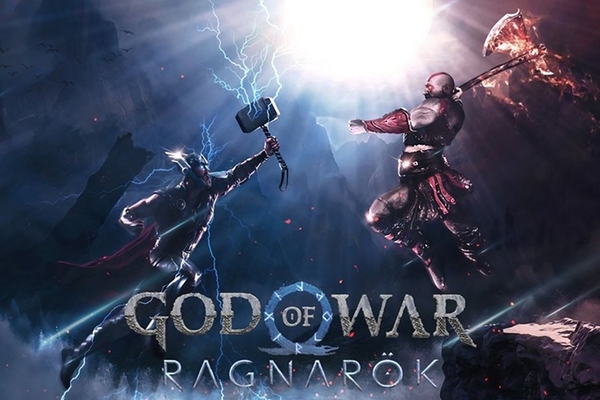The Assassin’s Creed franchise has long been celebrated for its blend of historical settings, rich storytelling, and fluid gameplay mechanics focused on stealth and action. With the introduction of Assassin’s Creed Shadows, Ubisoft ventures into new territory, refining core series elements while introducing fresh gameplay dynamics. This article explores the development, features, gameplay, narrative, and community reception of Assassin’s Creed Shadows, offering an expert analysis of how it expands and redefines the franchise’s identity.
1. Origins and Development of Assassin’s Creed Shadows
Assassin’s Creed Shadows emerged as Ubisoft’s response to evolving player expectations for more focused, stealth-driven gameplay within the franchise. Unlike previous large open-world entries, Shadows aims to deliver a tighter, more tactical experience emphasizing careful planning and shadowy maneuvers.
The development team focused on delivering a game that harks back to the series’ stealth roots while modernizing controls and AI to offer a fresh challenge. Announced amid excitement, Shadows was designed to appeal to both longtime fans and newcomers intrigued by stealth strategy.
2. Setting and Historical Context
Set during the volatile era of feudal Japan, Assassin’s Creed Shadows immerses players in a world of samurai clans, political intrigue, and ancient mysticism. The richly detailed environment provides a compelling backdrop for the assassin’s journey.
H3: Feudal Japan as a Playground
The game’s world includes bustling cities, serene temples, and dense forests, all designed with historical accuracy and atmospheric depth. This setting offers diverse tactical opportunities for stealth and exploration.
H3: Historical Figures and Storyline
Players interact with iconic figures from Japanese history, intertwining personal vendettas with larger political conflicts. This narrative layering enriches the player’s experience and grounds the story in real-world drama.
3. Core Gameplay Mechanics: Stealth Reimagined
At its heart, Assassin’s Creed Shadows is a stealth game that encourages patience and strategy. Players must observe enemy patterns, use the environment for cover, and execute precise assassinations.
H3: Enhanced Stealth Tools
New gadgets and abilities allow players to manipulate shadows, create distractions, and silently neutralize foes. These tools expand tactical options without overwhelming complexity.
H3: Adaptive AI
Enemy AI reacts dynamically to player behavior, learning from repeated tactics and forcing players to continually adapt their strategies, maintaining tension and engagement.
4. Pacing and Mission Design
Unlike sprawling open worlds, Shadows features carefully curated missions designed to maximize suspense and challenge. The pacing favors deliberate infiltration over frantic combat.
H3: Mission Structure
Each mission presents multiple approaches, from silent takedowns to blending with crowds. The level design supports experimentation and rewards creativity.
H3: Tension Building
The pacing escalates within missions, starting with reconnaissance and culminating in high-stakes assassinations, ensuring a satisfying gameplay rhythm.
5. Character Progression and Customization
Player progression in Assassin’s Creed Shadows is tied to mastering stealth and improving character skills. Customization options allow tailoring playstyle.
H3: Skill Trees
Players unlock abilities in categories such as movement, combat, and stealth gadgets. Choices influence how players approach challenges, promoting replayability.
H3: Equipment and Gear
From traditional ninja weapons to advanced tools, gear customization offers tactical advantages. Cosmetic options also let players personalize their assassin’s appearance.
6. Visual and Audio Design
The aesthetic of Shadows is crafted to immerse players in feudal Japan’s atmospheric tension. Visuals and sound work in tandem to enhance stealth gameplay.
H3: Lighting and Shadows
Dynamic lighting creates deep shadows that players can use to their advantage, while enemy vision cones are clearly represented, aiding strategic planning.
H3: Soundscapes
Ambient sounds like distant drums or whispered conversations heighten immersion, while careful audio cues alert players to nearby threats.
7. Multiplayer and Community Features
Assassin’s Creed Shadows expands the franchise’s multiplayer aspects, encouraging cooperative stealth and competitive modes.
H3: Co-op Missions
Players can team up for specially designed stealth missions, requiring communication and coordination to succeed.
H3: PvP Stealth Challenges
Competitive modes pit players against each other in arenas focused on stealth and deception, adding a fresh layer of multiplayer engagement.
8. Narrative Depth and Storytelling Techniques
Storytelling in Shadows goes beyond cutscenes, using environmental narrative and character interactions to immerse players.
H3: Environmental Storytelling
Players uncover lore through artifacts, graffiti, and architecture, enriching the world and deepening engagement.
H3: Character-Driven Plot
Complex characters with motives and backstories create emotional stakes, encouraging players to invest in their journey.
9. Technical Performance and Accessibility
Ubisoft optimized Assassin’s Creed Shadows for modern platforms, balancing stunning visuals with smooth performance.
H3: Platform Support and Graphics
Available on multiple consoles and PC, the game scales graphics to hardware capabilities, maintaining consistent frame rates.
H3: Accessibility Features
Options such as customizable controls, difficulty adjustments, and visual aids make the game approachable for diverse players.
10. Future Updates and Community Impact
Ubisoft’s post-launch support includes expansions, balance patches, and community events to sustain interest.
H3: Planned DLC Content
Upcoming expansions promise new missions, weapons, and storylines that further explore the feudal Japan setting.
H3: Community Engagement
Regular developer updates, player feedback channels, and competitive events foster a vibrant community around Shadows.
Conclusion
Assassin’s Creed Shadows marks a compelling evolution of the series, emphasizing stealth and strategic gameplay within a richly detailed historical context. Its focus on pacing, adaptive AI, and immersive design challenges players to think carefully and act decisively. With strong narrative depth, robust multiplayer modes, and ongoing developer support, Shadows appeals to both longtime fans and new players seeking a sophisticated stealth experience. This entry reaffirms Ubisoft’s commitment to innovation while honoring the franchise’s roots.





























